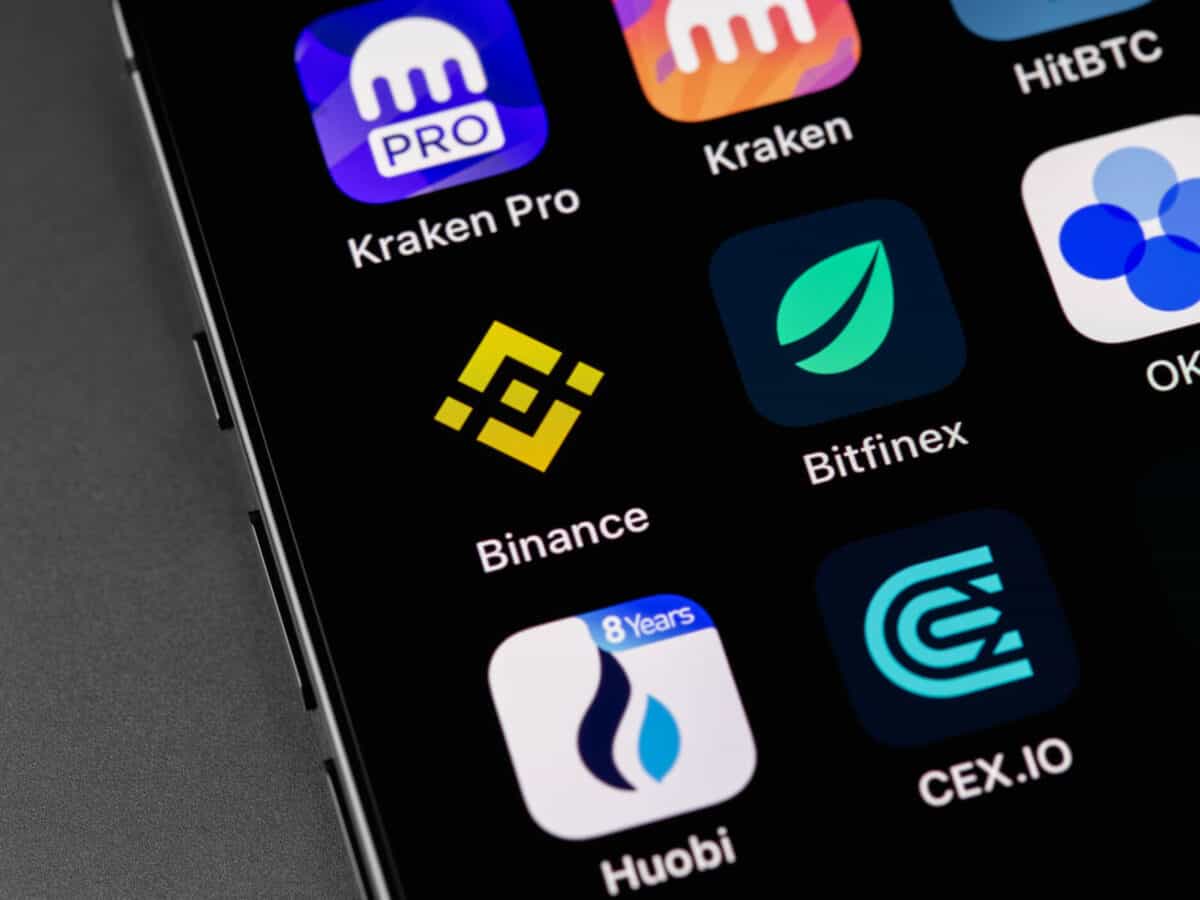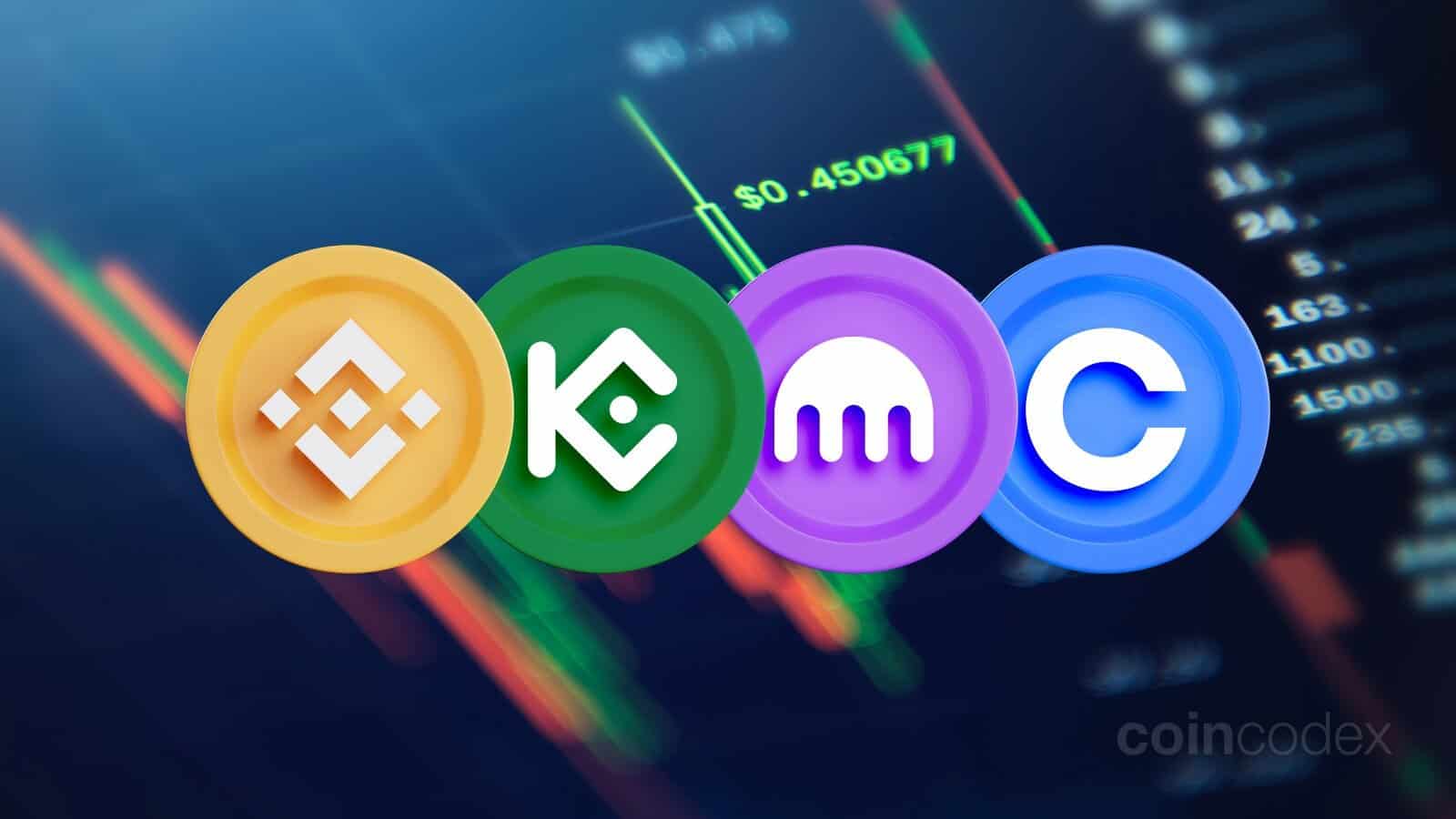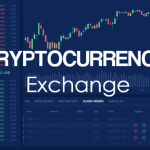Comparison of popular crypto exchanges is more than just number crunching and fee hunting—it’s about finding a platform that feels like the command center of your very own financial spaceship. Wrestling with the question of which might reign supreme? You’re not alone. Today, we taxi through this cosmic field of digital marketplaces, each jostling for the title of the best among the stars. We’ll tackle head-on the heavyweight title match between Binance and Coinbase and see how eToro’s fees stack up against the rest.
We aren’t just stopping at costs; we’ll dive deep into the user experience and pull back the curtain on the security measures that keep your assets from floating into the digital abyss. But what about the cryptos you can trade? From Bitstamp’s altcoin assortments to the frontiers of decentralized exchanges, we’re charting the territories they offer. And because we care about the ground we stand on, we’ll untangle the web of regulations and size up the trading tech that keeps these behemoths orbiting smoothly. Strap in; we’re on a mission to discover the exchange that not only stands out but stands the test of time.
In-Depth Feature and Fee Analysis of Leading Crypto Exchanges
Binance vs Coinbase: A Thorough Feature Showdown
When picking a crypto exchange, it’s like choosing a super buddy for your money. You want the best, right? So, let’s dig into Binance and Coinbase, two heavy-hitters in the game. Both are big names, but they’re like night and day in some ways.
Folks love Binance for its low fees, and boy, can you trade a ton of different coins! Coinbase, on the other hand, is super easy to use. This is great for folks new to crypto. But for those ease-of-use perks, Coinbase fees can be higher than Binance’s. With Binance, you’ve also got more tools for trading if you’re ready to level up from beginner.
Now, let’s talk security. Both have solid security steps, but Coinbase keeps more of its stash offline. This means it’s tougher for bad guys to get to it. Binance is no slouch in security but has had a hack in the past. Still, they’re both safe as houses for your digital dough.
As for mobile apps, both have ’em, and they work well. So you can trade on the go, no sweat. Looking for special deals and perks? Binance gives you exchange tokens to help lower those fees. But maybe you’re after stability and a trusted name? Then Coinbase could be your go-to.
Comparing eToro Fees to Industry Averages
Next up is eToro, another big name you’ve probably seen around. Their claim to fame is “social trading”. You can copy what others do – like following a friend in a game, but with cash. Now, with fun comes a price. eToro’s fees aren’t the lowest, not by a long shot.
They charge what we call “spreads”. It’s like a markup on the price of the coins you buy. Just think of it as the cost of playing the game. These spreads can change based on what’s up in the market. And get this, you have to pay a fee if you want to take your money out.
But, people still go for eToro because it’s like being in a team. Plus, they let you trade more than just crypto. Like stocks, you know, bits of companies you can own. So it’s cool for branching out. And yep, their security is tight too, so you can rest easy.
In the crypto world, you’ve got lots of choices, and they all come with their own pros and cons. Some are great for newbies, others are for the more daring. Fees can make or break your choice, but always remember to check the features too. You want to make sure you’re not just saving money but actually getting what you need. So go ahead, look at these exchanges like you’re on a treasure hunt. Because, in a way, you are!
User Experience and Security: Evaluating Top Exchanges
Kraken: Navigating User Interface and Functionality
Kraken stands out with a smooth sea of features. First-time users notice its sleek design. You do not get lost here. It guides you like a friendly octopus. Its menus and tools are easy to use. Trading on Kraken feels like sailing calm waters. Charts and trade options are always just a click away.
But it’s not just a pretty face. Kraken is also strong, like a fortress. It guards your coins fiercely. Two-factor authentication is your first shield here. You’ll also find extra locks on withdrawals and settings. This keeps your assets safe from sea monsters. With Kraken, your journey in crypto feels secure and straightforward.
Bitfinex and Huobi: Security Protocols Under the Microscope
Let’s dive deeper, into the tech trenches. Bitfinex and Huobi are like armored submarines. They take security seriously. Think of Bitfinex as a vault, deep underwater. It has advanced verification steps. Your ID and bank details are checked with care. This process may take some time, but it ensures only you access your funds.
Ever heard of cold storage? Bitfinex keeps most coins offline. This means even if hackers breach the surface, your treasure stays buried safe. Withdrawal checks add another layer. Every request is passed through watchful eyes.
Huobi has similar safety protocols. Imagine a martial artist, swift and strong, guarding your crypto. Huobi’s safety includes a protection fund. This is like an emergency backup. If trouble hits, Huobi aims to cover your losses.
These secure exchange submarines navigate dark depths. They know the ways of the crypto ocean. Each exchange offers you a dive into the world of cryptocurrency. With their security measures, you can explore with peace of mind.
While trading, your security and comfort matter most. Each platform gives you tools and armor. You pick based on which fits you better. Do you prefer a friendly guide or an armored guard? The choice is yours. Remember, in the vast crypto sea, safety and ease help you swim far.
Accessibility and Diversity: Supported Currencies and Assets
Bitstamp and Altcoin Diversity: Assessing the Range of Trading Options
Bitstamp is like a big shopping mall for buying and selling different kinds of coins. They don’t just have the most known ones like Bitcoin or Ethereum. They also have a bunch of other cool coins, which we call altcoins. Each coin is special in its own way and can do different things.
If you’re looking to trade a wide range of altcoins, Bitstamp’s got you covered. They keep adding more coins, so traders have many options. It’s important because you don’t want to be stuck with just a few choices. More coins mean more chances to find the perfect fit for your trading needs.
Think of it like picking a candy from a huge pile. With Bitstamp, you’ve got an impressive mix. But remember, their options may not match another exchange. So it pays to look around and compare. Sometimes a smaller pile at another shop may have that perfect candy you really want!
Evaluating Decentralised Exchanges: Innovation in Asset Offerings
Decentralised exchanges, or DEXs, are the new kids on the block. They let people trade directly with each other without a big company in between. It’s like trading baseball cards in the playground – no shopkeeper needed.
DEXs offer some coins you can’t find anywhere else – fresh and unique. These are often tied to new projects and ideas in the crypto world. So if you’re looking for rare or experimental types of coins, a DEX might be the place to go.
What makes DEXs stand out is that you hold onto your coins. There’s no need to trust somebody else to keep them safe. It’s all about being in control and making your own choices.
Now, using a DEX might feel different than a regular exchange. It can be trickier, like solving a puzzle. But once you get it, you see all the neat stuff they offer. Always remember, with more control comes more responsibility. You have to keep your own coins safe.
To sum it up, Bitstamp is like your one-stop shop for lots of coins, while DEXs are the go-to for unique and new ones. But whether you choose Bitstamp or a DEX, it’s all about finding the best fit for your trading style and the coins you like. Keep an eye out for what each one offers and happy trading!
Understanding Regulatory Compliance and Trading Infrastructure
Impact of Regulations on Crypto Exchanges and their Operations
Crypto exchanges must play by the rules. Governments all around throw a bunch of legal stuff at them. This means they have to know who their customers are and keep an eye out for dodgy money moves. I like to call it the “crypto-checkpoint.” Exchanges that mess this up get in big trouble, facing fines or even a full-stop on their business.
Regulation is like a set of traffic lights. It’s there to keep things safe and smooth. Sure, it can slow things down. But, it’s better than a wild crypto-crash! Now, when we talk Binance and Coinbase, they are like the big trucks on this road. They follow the rules pretty well, checking your ID and making you answer a bunch of questions before you trade.
Exchange Technology and Performance: APIs and Blockchain Integration
Let’s talk tech now. Exchange technology is super important, ’cause that’s what keeps your trades zipping along. Think of APIs like the postal service of the crypto world. They’re how your trade orders get sent out and filled super quick. The cooler the tech, the smoother your trading goes. Exchange API efficiency is a huge deal because no one wants to sit around waiting, right?
Then there’s blockchain integration. It’s the backbone of any crypto exchange. It’s like getting the best lock for your bike. The better it’s built into the exchange, the safer your coins sit. Everyone wants their money fast and safe. Blockchain technology in exchanges does exactly that. It’s like having a super-smart robot guard your treasure.
These are huge points when comparing platforms. For example, Kraken keeps their sea-monster tech quite polished. Their users rarely hit snags and get tangled up when trading. Decentralised exchanges, on the other hand, are these cool spaceships, right? They’re new, shiny, and full of promises of freedom. But they can be clunky. You gotta be a bit of a tech-whiz sometimes to use them well.
Put simply, the way exchanges handle rules and their tech game can make or break your trading experience. Whether you’re a newbie in this crypto carnival or an old-timer with a digital treasure chest, knowing this stuff matters. Choose wisely and make sure whichever crypto pirate ship you board has got the right maps and cannons to navigate these seas!
We’ve waded deep into the features, fees, and user experiences of top crypto exchanges. From Binance and Coinbase’s face-off to eToro’s comparison with averages, the details are clear. We navigated the seas of Kraken’s interface and scanned security at Bitfinex and Huobi. We explored the vast asset offerings at Bitstamp and the fresh choices at decentralized exchanges.
The world of crypto trading is complex. Yet, what stands out is how each exchange tries to be the best for users like you. Whether by adding more coins or tightening security, these platforms evolve. They also work hard to meet tough rules and blend new tech into their systems.
Remember, the perfect exchange for one may not suit another. Your needs lead the way. So, take this knowledge, choose wisely, and trade with confidence. This isn’t just about making transactions—it’s about being part of crypto’s exciting future!
Q&A :
What factors should I consider when choosing a cryptocurrency exchange?
When selecting a cryptocurrency exchange, it’s essential to consider the following factors:
- Security Measures: Look for exchanges that have strong security protocols in place, including two-factor authentication, cold storage, and insurance against hacks.
- Supported Cryptocurrencies: Check which coins are available for trading. Some exchanges support a wide variety, while others may be limited.
- Fees Structure: Understand the fees for trades, withdrawals, and other transactions, as these can significantly affect your investment’s profitability.
- User Experience: The platform should be easy to use for both beginners and experienced traders. Simplicity in navigation, clear order books, and helpful customer support are key aspects.
- Liquidity: High liquidity means more trading volume and quicker transactions, which can be beneficial when the market is volatile.
How do the top crypto exchanges differ in terms of trading volume and user base?
The top cryptocurrency exchanges often differ significantly in terms of trading volume and user base:
- Trading Volume: Larger exchanges commonly report higher trading volumes, which suggests more market activity and liquidity.
- User Base: The number of active users can indicate the trust and popularity of an exchange. More users often correlate with better reliability and service diversity.
Each exchange will have different attributes attracting different profiles of investors, from beginners to institutional traders.
Are there any hidden costs I should be aware of with popular crypto exchanges?
Yes, beyond the apparent trading fees, several hidden costs could impact your transactions:
- Withdrawal Fees: Some exchanges charge significant fees for withdrawals, which can become costly.
- Spread: The difference between the buy and sell price, or the bid-ask spread, can be a hidden cost if it’s wide.
- Inactivity Fees: Certain platforms may charge a fee if your account is inactive for a specific period.
It’s crucial to read the fine print and understand all possible charges before committing to an exchange.
What’s the difference between a decentralized exchange (DEX) and a centralized exchange (CEX)?
A decentralized exchange (DEX) operates without a central authority, enabling direct peer-to-peer cryptocurrency transactions to take place online securely and without the need for an intermediary. Conversely, a centralized exchange (CEX) is run by a company that provides a platform for buying, selling, or trading cryptocurrencies. The main differences include:
- Security: DEXs reduce the risk of hacks associated with CEXs but may have other security concerns like smart contract vulnerabilities.
- Control of Funds: Users maintain control of their private keys on DEXs, whereas CEXs hold the users’ funds.
- Ease of Use: CEXs generally offer a more user-friendly experience with additional services such as customer support.
Can I use multiple crypto exchanges at once, and is it recommended?
Yes, you can use multiple cryptocurrency exchanges. Doing so may offer several advantages:
- Diversification of Risk: By spreading your assets across various platforms, you reduce the risk of losing funds due to a single exchange’s compromise.
- Access to Various Coins: Different exchanges may offer different cryptocurrencies or trading pairs.
- Price Comparison: You might find better buying or selling prices across different exchanges.
However, using multiple platforms also requires you to keep track of various security measures and keep up with different fee structures, which can be complex.




